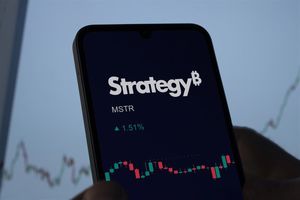Survey of enterprises worldwide shows productivity improvements, cost savings and supply chain resilience are top motivators for smart manufacturing
58 percent of enterprises cite organizational change management as their top challenge
Manufacturers are reporting significantly higher levels of smart manufacturing success year-over-year, but say organizational change remains a challenge, according to the results of the 2023 ISG Smart Manufacturing Survey presented here today at an industry event hosted by Information Services Group (ISG) (Nasdaq: III), a leading global technology research and advisory firm.
The ISG survey of more than 125 senior decision-makers involved in smart manufacturing programs at multinational enterprises found 71 percent of manufacturers say they are achieving anticipated results from smart manufacturing initiatives in 2023, up from 37 percent in 2022. At the same time, uncertainty over whether success has been achieved has decreased significantly, down to 11 percent, compared with 53 percent last year.
Presenting the survey results at the ISG TechXchange: Smart Manufacturing event today in Chicago, Gaurav Gupta, partner and global head of ISG Digital Engineering, said enterprises cite productivity improvements, cost savings and supply chain resilience as the primary objectives for smart manufacturing initiatives. The first tangible smart manufacturing results are achieved within 12 months in 81 percent of reported cases, the survey found.
“Smart manufacturing is both relatively new and decidedly successful,” Gupta said. “More than 60 percent of respondents to our study started a smart manufacturing initiative within the past four years, and those investments appear to be paying off, with more than 70 percent reporting success as measured by cost savings and the quality of manufacturing.”
Driven by that success, smart manufacturing initiatives are growing, with 75 percent of programs employing at least 100 professionals in 2023, up from 40 percent last year. The proportion of programs involving 2,500 or more employees has doubled in that time as manufacturers increase their deployment of smart manufacturing plans.
Change management has been the biggest challenge facing firms adopting smart manufacturing over the past two years, with 58 percent of businesses placing it among their top three challenges, and 22 percent naming it their single most important issue. Respondents point both to a lack of change management strategy and change management programs with conflicting priorities.
Regional challenges vary, as U.S.-based manufacturing companies highlighted legacy equipment as their second biggest challenge following change management, while European companies identified funding, ROI, scalability, training and IT/OT/ET integration as their top challenges after change management.
"Smart manufacturing is changing the workplace and the way the business operates, and while companies are achieving their technical goals, these programs will not be successful without a strategy to ensure the technologies are used as intended," said Alex Bakker, director of primary research for ISG and co-author of the smart manufacturing study.
“It’s critical to have a change management strategy that connects all elements of the value chain,” said John Lytle, director, ISG Industrial Manufacturing and chair of the ISG event. “Enterprises struggling with resistance to change, conflicting priorities or unclear change management strategies should prioritize a target operating model that synchronizes their people, processes and technology to increase the business value smart manufacturing is already delivering.”
Lytle said organizational workflows can simplify processes across smart manufacturing initiatives, and organizational structure should nurture a culture aligned to common business goals.
“If enterprise tools and platforms enable collaboration, a free flow of information, the removal of silos, and automation for repeatable processes, the workforce will be empowered and the culture will encourage leadership, continuous improvement, adaptability and accountability,” he said.
Additional information about the ISG TechXchange: Smart Manufacturing event is available on the event website. Additional information on the ISG Smart Manufacturing Survey is available on the ISG website. A summary of the study can be found here.
About ISG
ISG (Information Services Group) (Nasdaq: III) is a leading global technology research and advisory firm. A trusted business partner to more than 900 clients, including more than 75 of the world’s top 100 enterprises, ISG is committed to helping corporations, public sector organizations, and service and technology providers achieve operational excellence and faster growth. The firm specializes in digital transformation services, including automation, cloud and data analytics; sourcing advisory; managed governance and risk services; network carrier services; strategy and operations design; change management; market intelligence and technology research and analysis. Founded in 2006, and based in Stamford, Conn., ISG employs more than 1,600 digital-ready professionals operating in more than 20 countries—a global team known for its innovative thinking, market influence, deep industry and technology expertise, and world-class research and analytical capabilities based on the industry’s most comprehensive marketplace data. For more information, visit www.isg-one.com.
View source version on businesswire.com: https://www.businesswire.com/news/home/20230522005629/en/
Contacts
Press:
Will Thoretz, ISG
+1 203 517 3119
will.thoretz@isg-one.com
Julianna Sheridan, Matter Communications for ISG
+1 978-518-4520
isg@matternow.com






